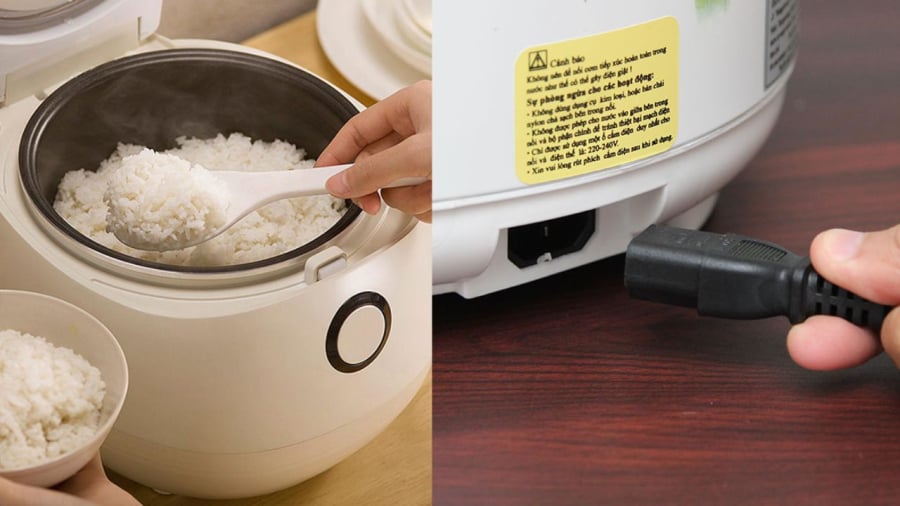Should You Unplug the Rice Cooker Once the Rice is Cooked?
A rice cooker is an automatic rice-cooking appliance. Once the rice is cooked, the cooker automatically switches to ‘keep warm’ mode, which consumes a significant amount of electricity. Therefore, to save energy, you can unplug the cooker when the rice is ready. However, if you’re not eating immediately, leaving the cooker unplugged for an extended period will cause the rice to gradually cool down, resulting in lukewarm rice during mealtime. On the other hand, keeping it plugged in for too long after the rice is cooked will lead to increased electricity consumption and overcooked, dry rice.
Hence, the best practice is to cook rice close to mealtime. When the rice is in ‘keep warm’ mode for about 10 minutes, you can open the lid, gently fluff the rice to ensure even warmth, and then unplug the cooker to save electricity before serving.
Leaving the rice cooker plugged in for extended periods can cause the rice to develop an unpleasant taste and texture. The warmth may alter the aroma, making it less fragrant and slightly stale. Moreover, keeping the cooker on for too long can accelerate the aging process of the appliance, reducing its lifespan.

Unplug the Rice Cooker a Few Minutes After the Rice is Cooked to Save Electricity
Why Does Rice Taste Less Appealing Over Time?
Many people notice that after some time, their rice cooker doesn’t seem to generate enough heat, resulting in less-than-ideal rice. This is often due to the aging or dirty heating plate at the bottom of the cooker.
During the rice cooking process, rice, water, or starch may fall onto the heating plate, creating a layer of grime that affects the food’s quality and leads to increased electricity consumption. This grime can also cause rust and potentially lead to electrical hazards.
To improve the taste of your rice and save energy, it’s essential to clean the heating plate regularly. You can use a soft paper towel to absorb any moisture and remove food residue from the surface. Alternatively, a mixture of baking soda and alcohol can be applied with a damp cloth to scrub away any stubborn grime. Be sure to dry the area thoroughly afterward with a clean cloth.
Pay extra attention to the center of the heating plate, as small grains of rice or dirt may accumulate there. You can also use toothpaste diluted with dish soap to remove stubborn stains. Just apply the mixture, scrub, and wipe away the residue once the stain is gone.
A clean heating plate ensures better heat conduction, resulting in faster cooking times and reduced electricity consumption. Remember also to avoid washing rice directly in the inner pot, as this can damage the non-stick coating.














